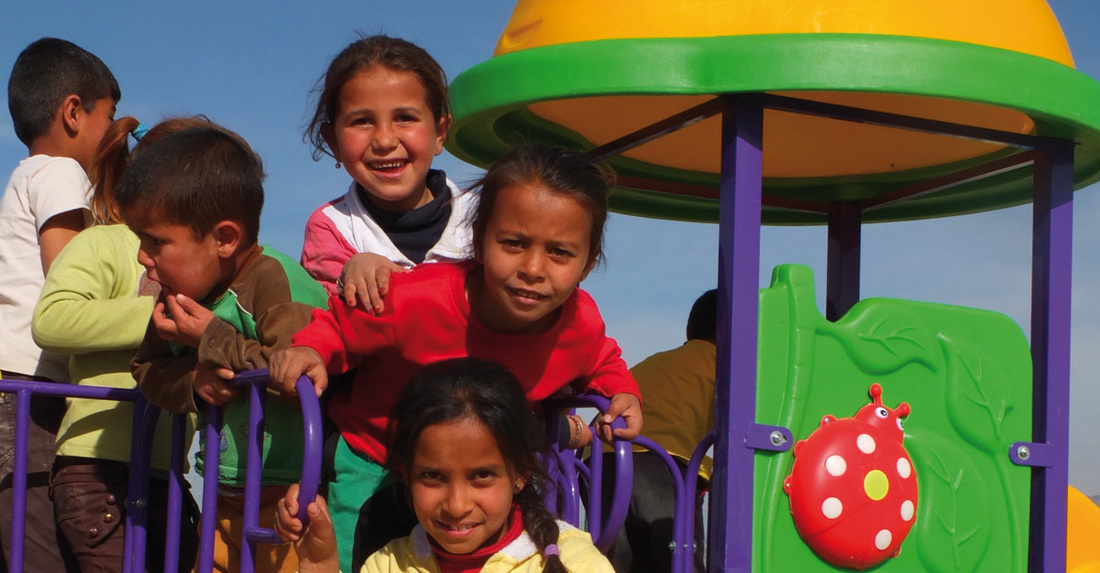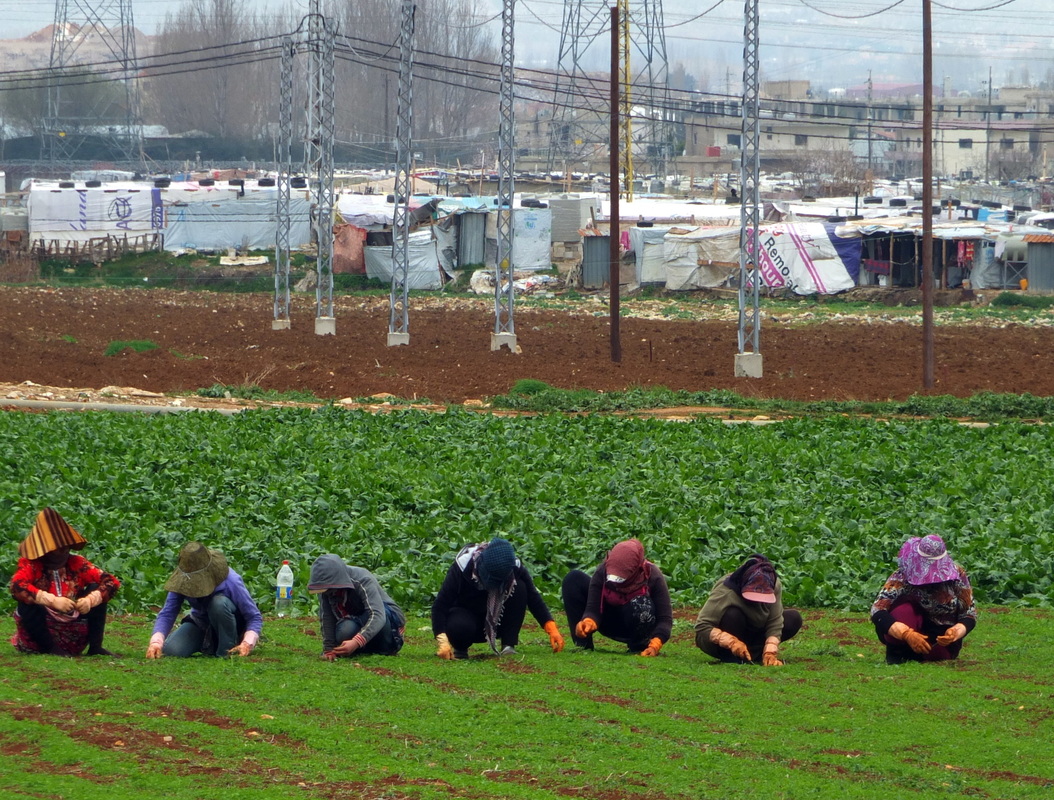|
Today is the World Day Against Child Labour. Launched in 2002 by The International Labour Organization (ILO) this is a day to focus attention on the global extent of child labour and the action and efforts needed to eliminate it. Each year on 12 June, the World Day brings together governments, employers and workers organisations, civil society, as well as millions of people from around the world to highlight the plight of child labourers and what can be done to help them.
Children on the Edge combat child labour through the development of community led child protection, the provision of quality education and, when the need arises we facilitate more targeted work. The Bekaa Valley region where we support a number of tent schools for Syrian refugee children, is the area of Lebanon that hosts the largest number of Syrian refugees (378,000, or 35 per cent of all refugees), and it is also the region where the majority of informal tented settlements are located. This setting facilitates the massive recruitment of children into child labour, often undertaken by camp leaders to local employers. The Lebanese host communities in Bekaa are also among the most vulnerable communities in the country, making children more vulnerable to being exploited (1). The opportunity to learn in the tent schools provides a general level of protection from child labour, but because of the vulnerability of the Syrian refugee communities, there is a need for additional focus from the Mercy Foundation team. Teachers on the programme have picked up a lack of support from some parents who are facing poverty and do not understand the value of education in comparison with the chance of their children providing for the family. Education Co-ordinator Nadine Morcos said “Many of the parents are illiterate and many will only encourage the children to go to school if it is local and only up until they are able to work in the fields, or carpentry, or a mechanic shop etc. Many students leave school to work and to help parents and carers to support younger siblings this makes them feel older and more important and their peers look up to them because of it.” The team are targeting this by organising school events, parent visits to view the children’s work and to take part in their learning, and teacher-parent meetings to discuss school updates. They are also talking with local employers and looking to introduce a literacy programme for women and to involve parents in extra curricular activities such as art and crafts and holiday activities to help them to better engage with the programme. The potato harvest season is the time when exploitation is at its highest, often coming from camp leaders who make it a part of the rent deal. One way our partners have tackled this is the building of their own refugee camp, a safe place for families with fair rent contracts. In the other camps where the tent schools are situated, they have created contracts between the schools and the landowners stopping them from taking the children out of school to work. Find out more about the project Consider donating to this work Share this story with the hashtag #childlabour (1) ILO-UNICEF ‘Tackling child labour among Syrian refugees and their host communities in Lebanon’ 2015 Support usComments are closed.
|
RECEIVE OUR EMAILSBlog Categories
All
Archives
July 2024
|
|
JOIN US ON SOCIAL MEDIA
|
Annual Report | Contact Us | Jobs | Media Centre | Resources | Shop
Accessibility & Policies: Accessibility | Equity, Diversity & Inclusion Policy | Complaints| Privacy Policy | Safeguarding
Accessibility & Policies: Accessibility | Equity, Diversity & Inclusion Policy | Complaints| Privacy Policy | Safeguarding
Children on the Edge, 5 The Victoria, 25 St Pancras, Chichester, West Sussex, PO19 7LT, UK | 01243 538530 | [email protected]




 Give monthly
Give monthly Fundraise for us
Fundraise for us RSS Feed
RSS Feed
